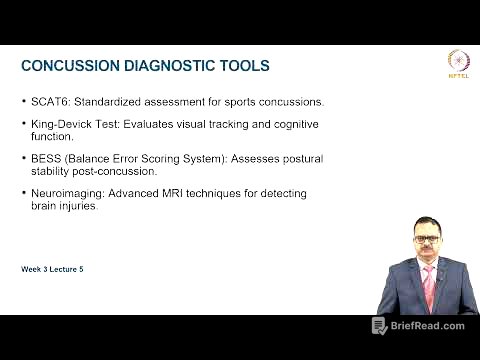TLDR;
This orientation lecture for the Calin University's reading and writing course, taught by Professor Junis Lee, emphasizes the importance of academic writing as a tool for learning, critical thinking, and effective communication across disciplines. The course aims to equip students with the skills to plan, write, and edit various types of practical and academic writing, enhance their vocabulary, and improve their grammar and punctuation. The course focuses on critical reading, methodical writing, research, documentation, and practical grammar.
- Importance of academic writing for learning and communication.
- Course objectives include improving writing skills, critical thinking, and vocabulary.
- Key areas of focus: critical reading, writing process, research, and grammar.
Introduction [0:59]
Professor Junis Lee welcomes students to the Calin University's reading and writing course, emphasizing the importance of the orientation lecture for success in the course. The lecture will cover the significance of academic writing and the detailed requirements of the course.
Course Description and Importance of Writing [2:38]
The course description highlights that writing is essential for learning across disciplines. Writing is a tool for exploring different viewpoints, advancing knowledge, and sharing discoveries. It's not just a means of communication but also a way to process information and think more clearly. The course aims to address the lack of writing skills among many undergraduate students and graduates, as well as their ability to critically assess the writing of others.
Course Objectives and Learning Outcomes [9:23]
Upon completing the course, students will be familiar with various writing styles and topics, and they will be able to apply critical thinking skills in analyzing, evaluating, and revising arguments, opinions, and claims. The main objective is for students to confidently write and edit practical and academic English. Secondary objectives include increasing topic-specific English vocabulary and demonstrating accurate grammar and punctuation in writing.
Key Areas of Focus [11:41]
The course content, assignments, and assessments are aligned to specific learning outcomes, including success skills, critical reading skills, the writing process, the research process, and grammar skills. Success skills involve identifying and practicing habits for success and applying critical thinking skills. Critical reading skills include identifying strategies for different types of texts and strengthening vocabulary. The writing process covers topic selection, prewriting activities, evidence gathering, essay organization, drafting, revision, and proofreading. The research process includes identifying search techniques, assessing source quality, understanding plagiarism, and applying MLA documentation and citation practices. Grammar skills focus on identifying patterns of academic grammar and usage, including the function of nouns, pronouns, verb types, adjectives, adverbs, conjunctions, prepositions, articles, punctuation marks, sentence types, and active and passive voices.
Textbooks and Supplementary Material [17:51]
The required textbooks for the course are "Basic Reading and Writing" by Luma Learning and "Academic Writing: A Handbook for International Students" by Stephen Bailey. Supplementary material includes "Thinking Critically" by John Chaffee. The link to download "Basic Reading and Writing" will be provided in the group chat room.
![[Calvin University] Reading and Writing 1-1](https://wm-img.halpindev.com/p-briefread_c-10_b-10/urlb/aHR0cDovL2ltZy55b3V0dWJlLmNvbS92aS9pX1N2b2prcVNCdy9tYXhyZXNkZWZhdWx0LmpwZw==.jpg)








